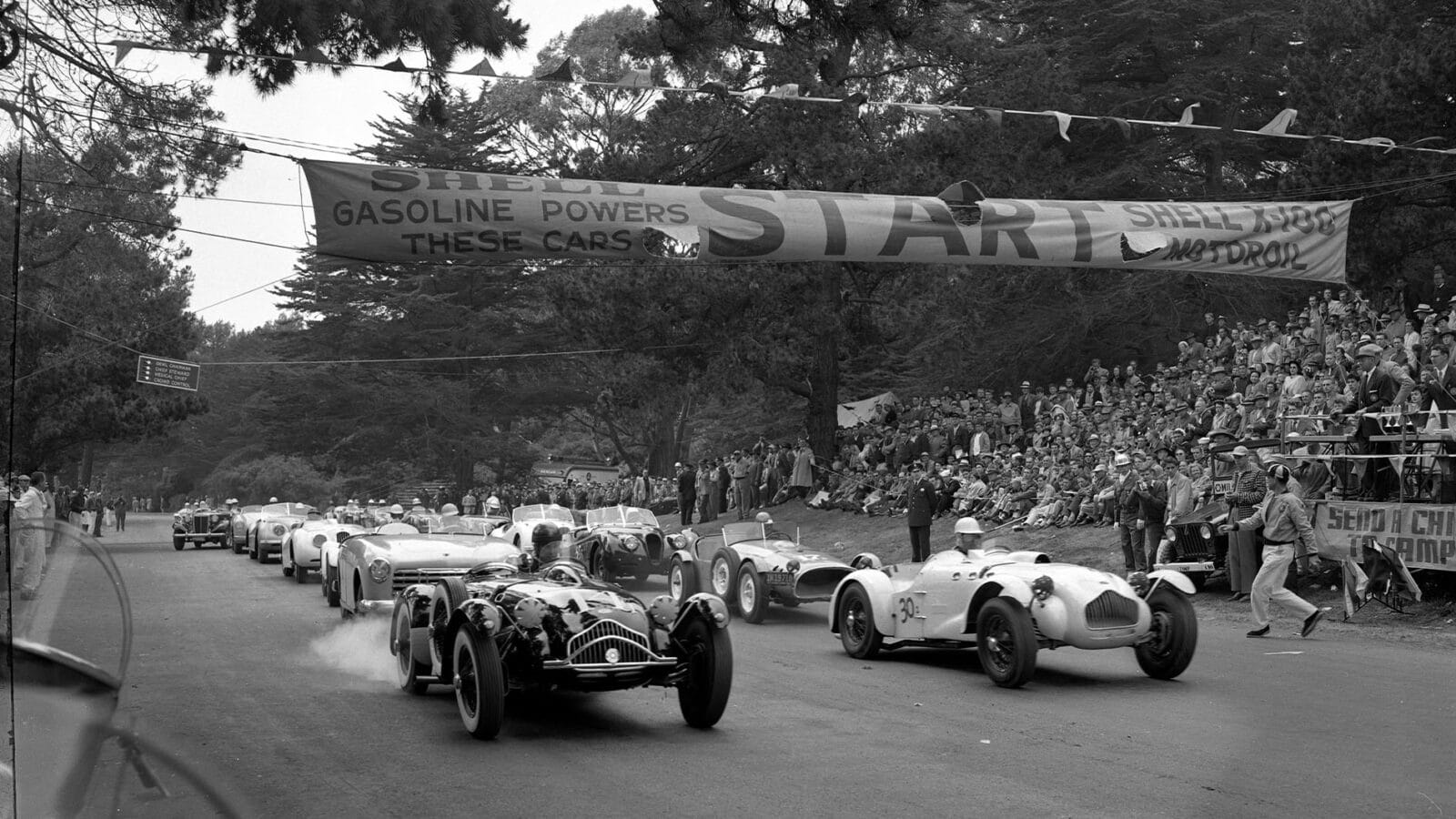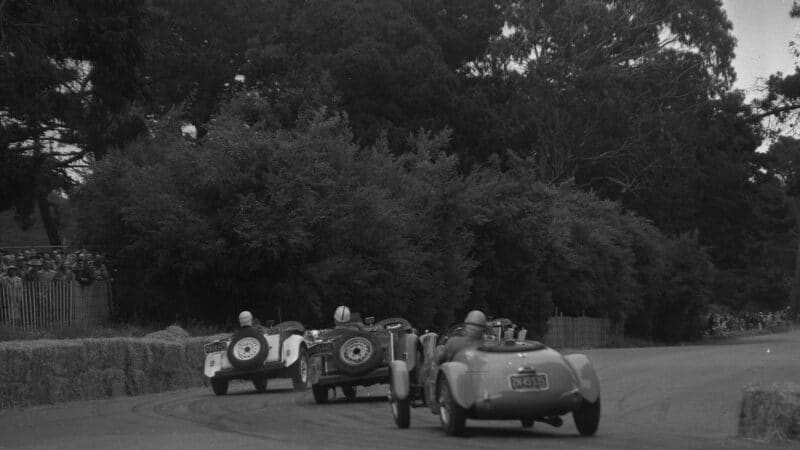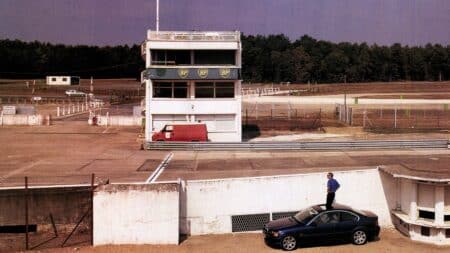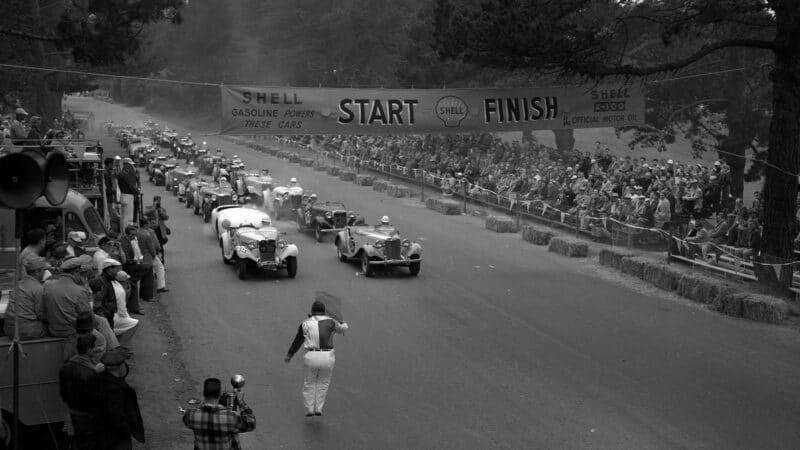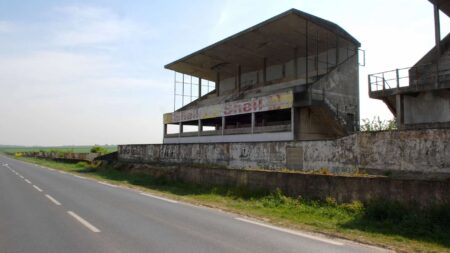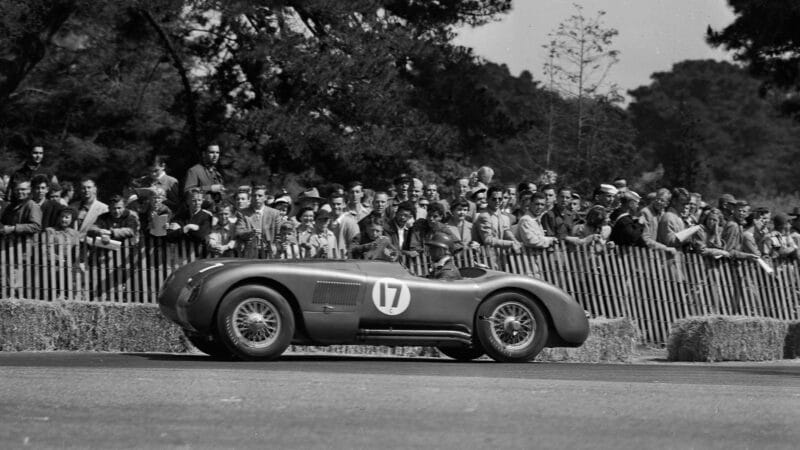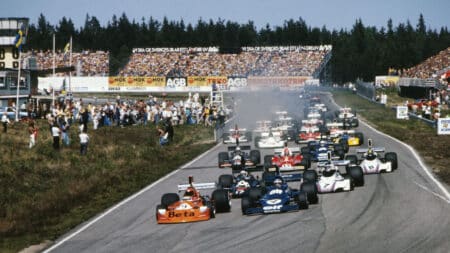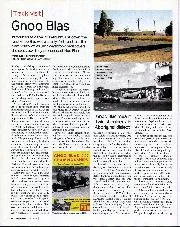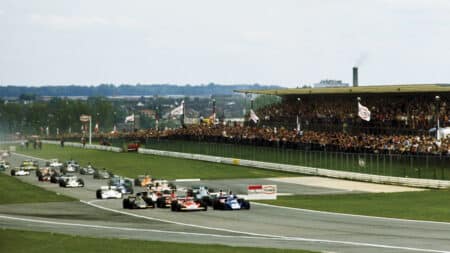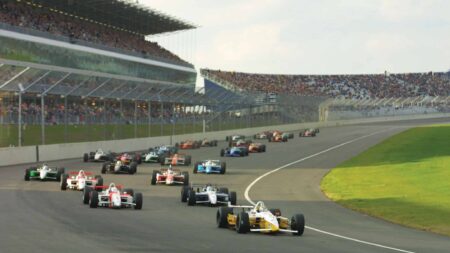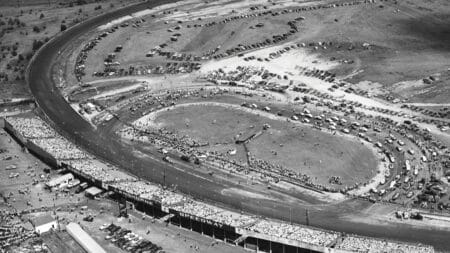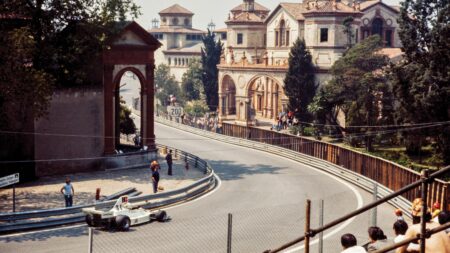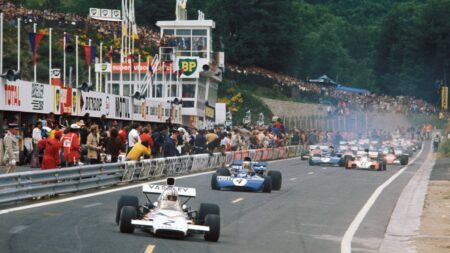Fifty-eight entries were accepted for the three races on the card: F3, sports cars under and sports cars over 1500cc. The under-1500s consisted mostly of MG TCs and TDs, while among the over-1500s were Jaguar XK120s, Allards, an Aston Martin, a Ferrari and a variety of specials. An estimated 50,000 spectators saw Roger Barlow (Simca Special) win the small-capacity category and Bill Pollack’s Cad-Allard beat Phil Hill’s Ferrari 212 in the main event.
The praise was universal — the track was not only picturesque but challenging, “One of the best in the United States, a true European-type road circuit.” The Guardsmen were already gearing up for 1953.
There were several changes made to improve crowd control and the racing for the second running. An even bigger crowd was being anticipated and miles of snow fencing was erected to keep fans further from the track. An additional production car class replaced F3 and more entries were accepted: 87. OSCA, Giaur, Jowett, Nardi, C-type Jaguars and Healey Silverstones joined the more familiar MGs, Allards, Porsches and homebuilt specials. Ken Miles’ R-1, an MG-based special, was the fastest 1500, but the man of the meeting was 21-year-old Masten Gregory, who belied his inexperience — just two races prior to this one — with a mature drive to victory aboard a C-type. A record 100,000 lined the course. The Guardsmen were soon planning for 1954.
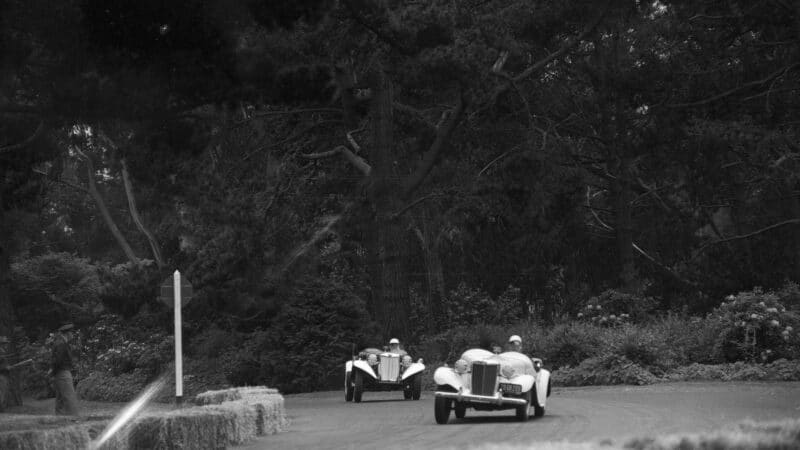
Such was its success, Golden Gate was touted as a future F1 circuit
Getty Images
The third meeting was bigger and better: 143 entries, 115,000 spectators, four races. Bill David’s OSCA ran away with the under-1500cc event and Jack McAfee’s Ferrari 375 outran the field in the main event. Journalists and officials were by now speculating that Golden Gate Park’s races might gain grand prix status and attract top international drivers to compete with America’s best.
Not everybody was enamoured, though. Environmentalists wielded power even then and the city fathers succumbed to their pressure to stop the races: too many people, too much noise, and damage to plants and trees. Racing cars were getting faster, too, increasing the chance of a big accident. The venue was consigned to history.
